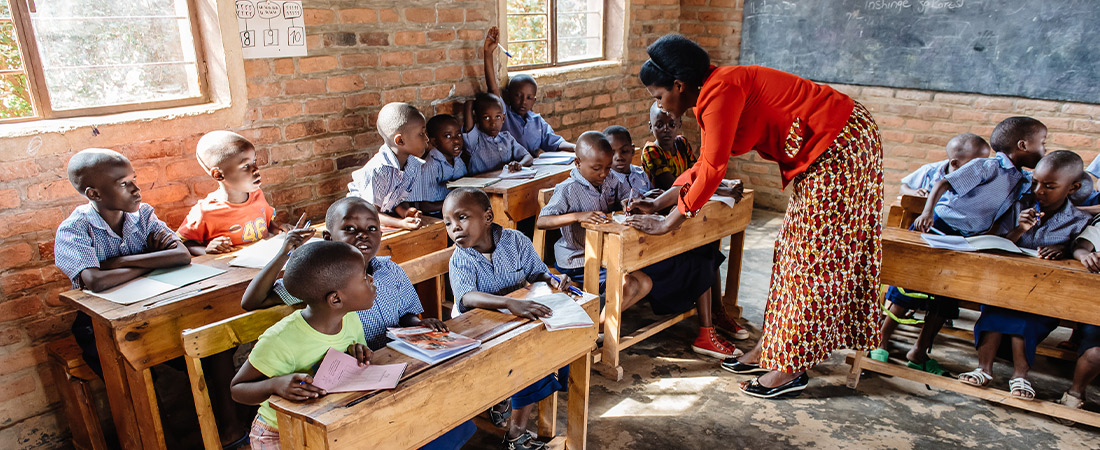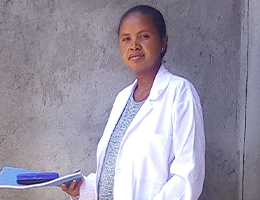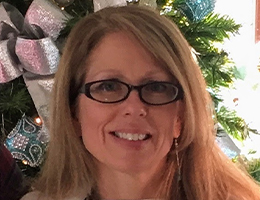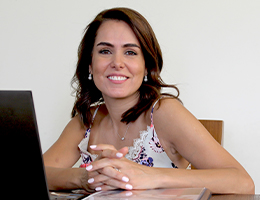Celebrating Teachers Around the World

A good teacher does so much more than just teach. They inspire, too. And in this era of distance learning and fractured access to education, celebrating teachers who go the extra mile is more important than ever.
On World Teachers’ Day, we honor all educators for their care and dedication. Below, four teachers who are participating in EDC programs reflect on their own experiences.
Science Yohannes, Professor of Teacher Education, Ethiopia
EDC Project: READ II
For a teacher, nothing is better than seeing your students succeed. When I see my former students in different senior positions, such as university instructors, it creates greater satisfaction and energy for me.
I enjoy being a college instructor because it provides me with an opportunity to read different books and get new experiences. I enjoy the strong relationships and collaboration with students and colleagues.
Of course, it is challenging as well. Many people have a negative attitude toward the teaching profession in general, and mother tongue language instruction in particular. And being a teacher takes a lot of time. It is hard to participate in different social activities.
Teaching during COVID-19 has been difficult. It has affected my ability to fully implement my lessons for my students. It has also been difficult to maintain a healthy work-life balance.
Participating in READ II’s Knowledge Exchange Group has helped me to evaluate my practices, share my thoughts, refresh my understandings, and gain new insights. Moreover, it helped me get back to my work of teaching. This is the only distance learning activity I have participated in after the emergence of the pandemic, but it helped motivate me to get back to work.
As we continue to navigate these strange times relating to the impact of COVID-19, moving to distance learning is so important. The opportunity to share learning with students is a blessing.
Corey Fornaro, Pre-kindergarten Teacher, Rhode Island, United States
EDC Project: Center for Early Learning Professionals
Teaching is more than a job—it’s most of my life. When I’m at home, I’m always making games, planning, getting ready to teach, thinking about the kids in my classroom. I’ve been a pre-kindergarten teacher for 34 years, and I wouldn’t want to do anything else. Originally I didn’t want to work with young children. When I was a junior in high school, my sister was in college studying to be a teacher. She was working in a day care center one summer, and my mom sort of made me get a job there, too. I loved it, and I never looked back.
I love seeing the light bulb that goes on when kids figure something out. They’ve been doing something for a while. They’ve gotten frustrated, but they’ve kept trying. Suddenly they experience that moment— “Oh! That’s how it works!”—and they are so proud of themselves. Those are the moments I work for.
The pandemic has definitely changed things. I am continually cleaning everything to make things safe and healthy for the kids in my classroom. I’m doing social distancing, which is not easy with four-year-olds. It is hard to explain to little kids why they can’t all play together, why there can’t be so many kids together at the same time, and to do it in an age-appropriate way.
But it has had some unexpected positive surprises, too. Last year, I had a child in my class with selective mutism. Every morning last fall, we’d encourage him to say hello, use a sticker chart, and other things. He was very communicative with his gestures and facial expressions, but he never spoke. When we closed this March, I had small-group Zoom sessions with children throughout the week. In one session, I heard a voice I didn’t recognize. I said, “Who was that?” The child said, “It’s me!” It was so exciting. I had to call my supervisor to say, “You’ll never guess what happened!” Now he responds to questions and talks during class. He wasn’t comfortable with so many people in the classroom, and on Zoom he felt more at ease.
Dr. Rosine Zgheib, University Professor, Lebanon
EDC Project: Higher Education Capacity Development
My favorite part of teaching is the ability to experiment and try new strategies and learning initiatives. This opportunity to try something new makes the teaching experience more exciting.
In class, my greatest reward is seeing the students actively engaged in their activities after they have untangled a challenging concept or complex assignment. Out of class, I enjoy receiving emails from students years after I’ve taught them, telling me how lucky they had been to have taken a class with me and that I had marked their lives in one way or the other. I’ve had several opportunities to meet former students who have excelled and who have managed multinational companies and launched start-ups. But I think that one of the most rewarding success stories was of a student with a learning difficulty who was selected for a program with Microsoft in Australia.
One of the biggest challenges I have is motivating students to put forward their best efforts. Helping students value learning in general and the courses you’re teaching can be hard, depending on their backgrounds. It can be hard to reach every student equally and to address their varied learning needs.
Teaching itself can become tedious and stagnant if one does not develop oneself professionally. Being actively involved in Work Ready Now has made me more aware of new skills for the workplace, as well as technological tools that can be used in online learning. It has also pushed me to think of more ways to help my students in light of the recent economic struggles here in Lebanon.
To other teachers, I say: Show that you care, and students will do whatever you ask them to. You might feel like your work is unnoticed. Whether you know it or not, you are making a difference. Your job is not to change students or make them think a particular way. But if you have triggered a student’s interests to think about what you have said and to widen their horizons, then you will have marked their lives.
José Majano, Elementary School Teacher, Honduras
EDC Project: Honduras Reading Activity
To be a teacher is to be fundamental. In our hands is the power to form the children who are going to change the world. We mold those minds and teach them to face life.
Teaching has changed my life. My path, my mentality, my life changed completely when I became a teacher. One can learn a lot from children and that has taught me to be honest, frank and transparent to be able to live in society.
To me, the greatest difficulty of teaching is fear. Fear of making a mistake in front of children or society. If I, as a teacher, make a mistake with a child, I make a mistake in that child’s whole life and therefore in his or her society. The child trusts his teacher. That is why I must prepare myself day by day to be able to prepare those minds. They are like sponges waiting to learn.
When we were told that the schools would close in March, I was worried about the education of my students. Fortunately, thanks to the training of De Lectores a Lideres, I was already organizing chat groups with the parents of all my students. The children also already had the books produced by the project in their homes.
It was difficult. We did not know how much time we would spend like this. Weeks later, I set out to continue distance education with audios, videos, and whatever I had so as not to leave my students without any education. When De Lectores a Lideres arrived with its distance education package, we could see what we were doing well. The project helped us continue education activities.
It is fascinating that all this has been happening. Never before in my 20-year teaching career have I needed to use a computer to teach and, even less so, to use online platforms to do so. I had to teach myself in order to teach parents, children, and even other teachers how to use these technologies. As such, the moment has become an opportunity. Because of my inherent enjoyment of technology, I was able to link it with my teaching career. The impact for me was an opportunity to approach and implement education for children through technology. As a teacher, I have to teach the parents and then the children. We have become community teachers, outside the school and now inside the homes of the families.



